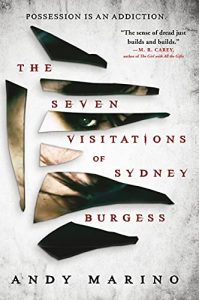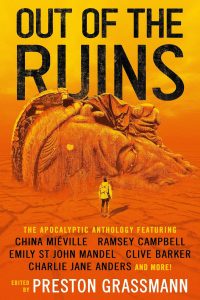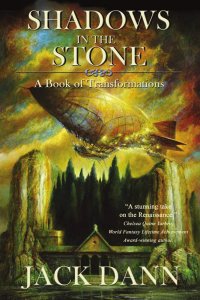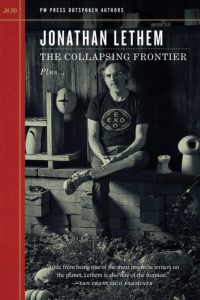Gabino Iglesias Reviews The Seven Visitations of Sydney Burgess by Andy Marino
 The Seven Visitations of Sydney Burgess, Andy Marino (Redhook Books 978-0316-62948-5, $16.99, 352pp, tp) September 2021.
The Seven Visitations of Sydney Burgess, Andy Marino (Redhook Books 978-0316-62948-5, $16.99, 352pp, tp) September 2021.
Andy Marino’s The Seven Visitations of Sydney Burgess is a creepy, tense narrative that exists somewhere between violent psychological thriller and supernatural horror novel. However, while most of the elements of those two subgenres are present here, the novel also delves deep into serious topics like guilt, substance abuse, and mental health. The result is a story that unsettles with its many possibilities and entertains with its dark elements.
Sydney has spent the last nine years rebuilding her life after years of drug addiction and constant drinking within the context of a messy relationship with a fellow drug user. Now she has a great partner, a nice house, a good job, and can give her son Danny everything he needs. Then all she’s built comes crashing down one day when she walks into her home and finds a masked intruder going through their things. The man knocks Sydney unconscious with a large candle and ties her up with duct tape. She manages to push a piece of furniture against the door and escape, but then collapses in front of one of her neighbors. When she wakes up in the hospital, she tells her story to a detective, but what she remembers doesn’t fit with what she left behind at her house: a dead intruder who was hacked to death with a kitchen knife. Sydney remembers a lot of details of her escape, but has no recollection of killing the man, and that’s when her shady past catches up to her and no one believes her. After returning home, Sydney’s world collapses into a maelstrom of paranoia, dark visions, questions, horrific memories, and problems with her boyfriend and son, who is now afraid of something ineffable he sees in his mother’s face. The darkness that entered Sydney’s life when she met the intruder is still there, all around her, and it makes her old habits come back with a vengeance, the cravings feeding on her confusion and pushing her to do things she knows she’ll soon regret.
The Seven Visitations of Sydney Burgess is all about liminality. Sydney is an unreliable narrator who is aware of some of the things that make her one. However, she is convinced of certain things and manages to talk or explain them convincingly, only to later find out they weren’t there, weren’t at all real, or were there but she misinterpreted them. The reader is dragged through her thoughts, and the process yanks the proverbial rug from under their feet every few pages until truth is a floating signifier that refuses to be pinned down. This makes the reading experience at once wildly engaging and confusing, frustrating, and addicting.
Marino is great at developing nuanced characters that feel real, and that makes readers develop empathy for Sydney. Her past is always present, and she knows it. However, she does everything she can to maintain the good life she’s built. When the darkness and strange events enter her life and everything crumbles, it pushes her insecurities to the forefront and the nine years of sobriety start meaning less and less in the face of possible escape. Throughout that mental shattering, Sydney keeps analyzing herself, wondering if what everyone thinks she did – what the evidence says she did – is something she could do:
I try to pull on a thread in my mind that might lead back to a feeling of savagery, of the kind of primal rage that could inspire such blinding ferocity. I could almost believe that I did it, if the man had been stabbed once or twice. I think I would be capable of something like that out of pure self-preservation, although I don’t know for sure. But the sheer will to drive a knife into another human being’s body twenty-eight times, to slice through flesh and sinew, over and over again – that is a monstrous act, no matter the circumstances. It would put me in a certain tier of humanity where I do not belong.
The mix of genres here is seamless. The beginning of the novel is purely a psychological thriller full of elements of crime fiction and a few that would fit in a police procedural. However, once Marino opens the door to the supernatural, everything takes a back seat to horror. Bad things are in the air; awful memories come back; reality shatters; Trevor, Sydney’s ex, shows up again; and addiction raises its ugly, devastating head. While that happens and Sydney’s life spirals out of control, she hovers above the moment, knowing what the right thing to do is but incapable of doing it because nothing makes sense. This allows her bad side to take control, and the results are as bad as she knows they can be.
Horror is so often predicated on fear of the unknown and the unknowable, but human beings can acclimate to almost anything, and now that I’ve gotten used to seeing through this ugly tinted the lens, it’s like a weird simulation of the life I used to lead. It’s both repellent and welcoming and I love it as much as I hate it.
The Seven Visitations of Sydney Burgess is an emotional rollercoaster of horror that has a deeply flawed, struggling main character at its center. There is no judgment here, but despite the whispers in the dark and awful visions, Marino forces readers to ponder what they would do in Sydney’s situation if they didn’t think of chemical dependency as something akin to an escape. Horror sometimes presents more questions than it answers, and that’s the case here. However, the way Marino shows the birth of those questions on the page will make readers rethink everything they think they now, and that’s exactly how the darkness takes over.
Gabino Iglesias is a writer, journalist, professor, and book reviewer living in Austin TX. He is the author of Zero Saints and Coyote Songs and the editor of Both Sides. His work has been nominated to the Bram Stoker and Locus Awards and won the Wonderland Book Award for Best Novel in 2019. His short stories have appeared in a plethora of anthologies and his non-fiction has appeared in the New York Times, the Los Angeles Times, and CrimeReads. His work has been published in five languages, optioned for film, and praised by authors as diverse as Roxane Gay, David Joy, Jerry Stahl, and Meg Gardiner. His reviews appear regularly in places like NPR, Publishers Weekly, the San Francisco Chronicle, Criminal Element, Mystery Tribune, Vol. 1 Brooklyn, the Los Angeles Review of Books, and other print and online venues. He’s been a juror for the Shirley Jackson Awards twice and has judged the PANK Big Book Contest, the Splatterpunk Awards, and the Newfound Prose Prize. He teaches creative writing at Southern New Hampshire University’s online MFA program. You can find him on Twitter at @Gabino_Iglesias.
This review and more like it in the October 2021 issue of Locus.
 While you are here, please take a moment to support Locus with a one-time or recurring donation. We rely on reader donations to keep the magazine and site going, and would like to keep the site paywall free, but WE NEED YOUR FINANCIAL SUPPORT to continue quality coverage of the science fiction and fantasy field.
While you are here, please take a moment to support Locus with a one-time or recurring donation. We rely on reader donations to keep the magazine and site going, and would like to keep the site paywall free, but WE NEED YOUR FINANCIAL SUPPORT to continue quality coverage of the science fiction and fantasy field.
©Locus Magazine. Copyrighted material may not be republished without permission of LSFF.







